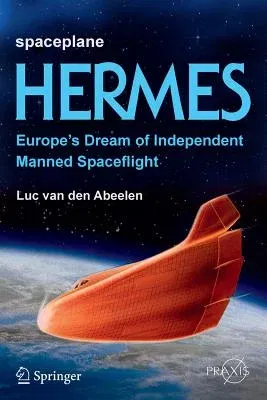Luc Van Den Abeelen
(Author)Spaceplane Hermes: Europe's Dream of Independent Manned Spaceflight (2017)Paperback - 2017, 21 December 2016

Qty
1
Turbo
Ships in 2 - 3 days
In Stock
Free Delivery
Cash on Delivery
15 Days
Free Returns
Secure Checkout

Part of Series
Springer Praxis Books
Part of Series
Space Exploration
Print Length
588 pages
Language
English
Publisher
Springer
Date Published
21 Dec 2016
ISBN-10
3319444700
ISBN-13
9783319444703
Description
Product Details
Author:
Book Edition:
2017
Book Format:
Paperback
Country of Origin:
NL
Date Published:
21 December 2016
Dimensions:
23.39 x
15.6 x
3.15 cm
ISBN-10:
3319444700
ISBN-13:
9783319444703
Language:
English
Location:
Cham
Pages:
588
Publisher:
Weight:
843.68 gm